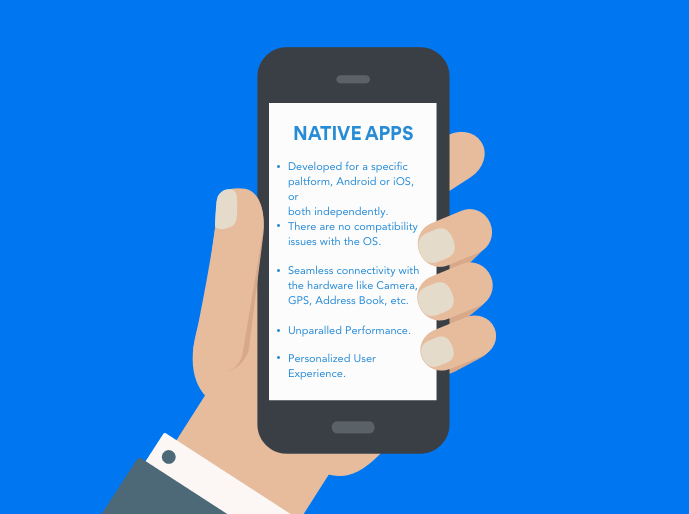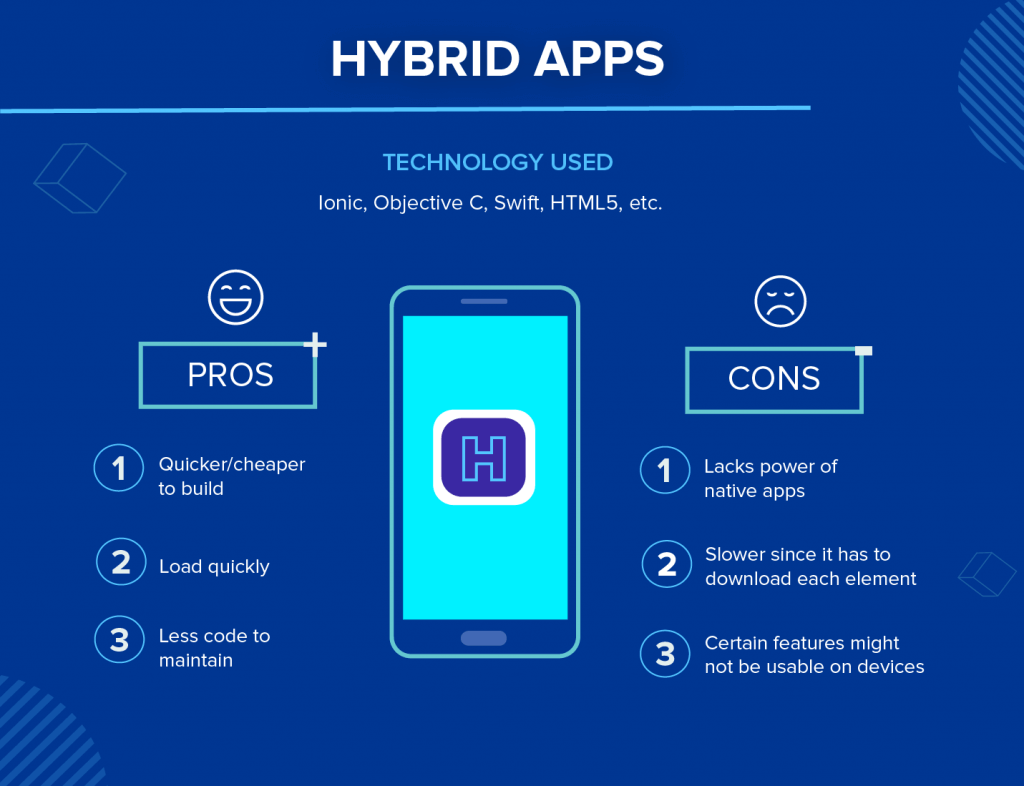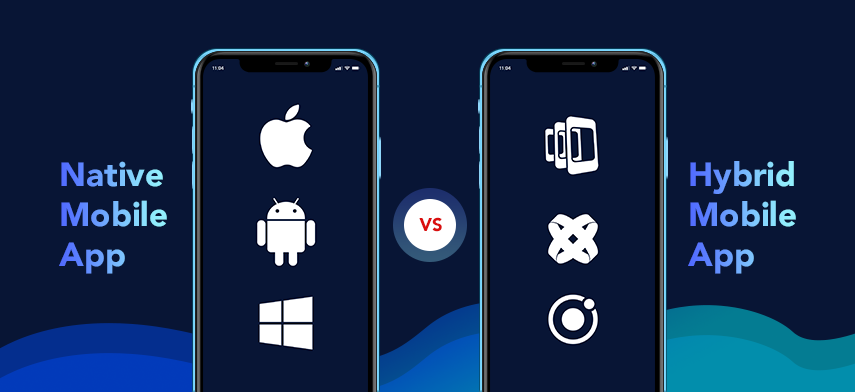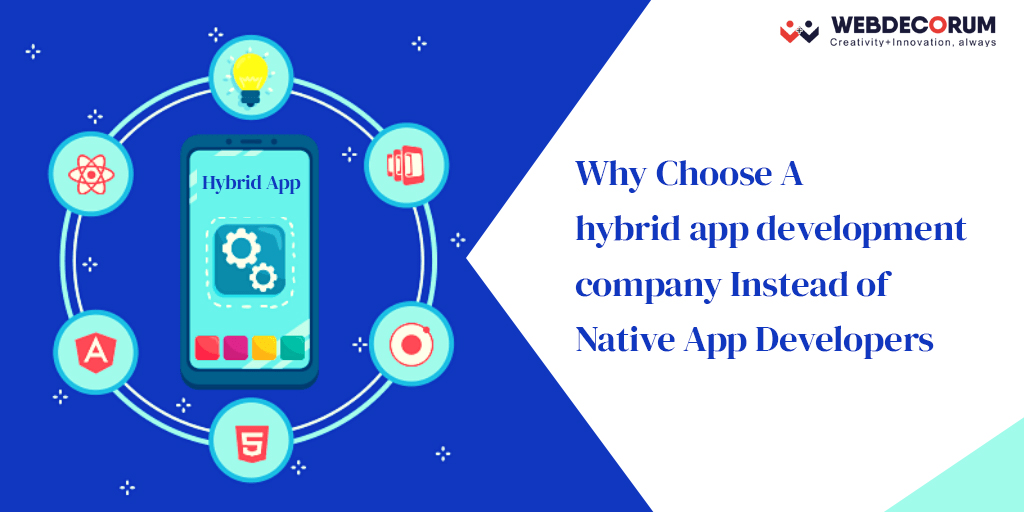The Benefits of Choosing a Hybrid App Development Company over Native App Developers
Mobile app development has become a critical aspect of businesses in today’s digital world. With the rise of smartphones, companies are looking to reach their target audience by developing mobile apps that cater to their needs. While native app development has been the norm, hybrid app development is quickly becoming a popular alternative. In this article, we will discuss the benefits of choosing a hybrid app development company over native app developers.
Cost-Effective:
Hybrid app development is significantly more cost-effective than native app development. This is because hybrid apps use a single codebase, reducing the time and cost required to develop separate apps for each platform.
Time-Saving:
Hybrid app development takes less time compared to native app development, which requires separate development for each platform. With hybrid app development, a single codebase can be used to develop an app for multiple platforms, saving time and increasing efficiency.
Access to a Wide Pool of Talent:
Hybrid app development companies have a larger pool of talented developers who are proficient in web technologies such as HTML, CSS, and JavaScript. This makes it easier to find the right talent for your project, reducing the time and cost required for recruitment.
Cross-Platform Compatibility:
Hybrid apps are designed to work on multiple platforms, such as iOS and Android, making them more accessible to a wider audience. This makes it easier for companies to reach their target audience, regardless of their device preference.
Easy Maintenance:
Hybrid apps are easier to maintain compared to native apps, as they use a single codebase. This makes it easier to fix bugs and make updates, reducing the time and cost required for maintenance.
In conclusion, choosing a hybrid app development company over native app developers has several benefits, including cost-effectiveness, time-saving, access to a wide pool of talent, cross-platform compatibility, and easy maintenance. If you’re looking to develop a mobile app for your business, consider choosing a hybrid app development company for a more efficient and cost-effective solution.
Developing an app for a brand has become the best way to maximize revenue generation. But you need to determine whether investing in hybrid application development will be better than paying for native app development. Before opting for one of the above, you need to analyze the multiple variable parameters like:
- Core business model.
- Nature of target audience.
- Expected user experience.
- Features of the app.
That is why in this blog, you will get an elaborate view of the main differences existing between the development of a native and a hybrid app. There will be also discussions on how to make the right decision depending on your business type.
What is a Native app?

The developers create the native applications based on the use of a native software language and tools specific to the platform. For instance, developers create native iOS apps using either Swift or C and compile them using Xcode. On the other hand, native Android application development will involve the use of Java or Kotlin with compilation via Android Studio.
What is a Hybrid app?

Hybrid applications refer to software apps that combine the elements of both web applications and web applications. Webdecorum is a reputed hybrid app development company that exhibits expertise in developing web applications in a native app environment that can work on multiple platforms owing to additional features.
Popular hybrid mobile app development frameworks
The chief advantage of a hybrid application is the flexibility to deploy on multiple operating systems and devices using the same code. This feature has made the option more affordable in comparison to native apps.
Take a quick look at the frameworks that have earned huge popularity among developers for making these hybrid apps.
-
React Native
Being the top choice of developers all over the globe, the framework comes with a world of highly advanced functions and features like life reload, code reusability, native plug-ins, community support, and more.
-
Flutter
It is the open-source framework from Google that is popular for its speed and reliability to develop the highly interactive native interface. There is a massive collection of widgets for SDKs and customization.
-
Ionic
Webdecorum has earned a massive reputation by using the Ionic framework that offers an extensive set of tools and features. It helps in creating interactive applications.
- Native mobile components for UI.
- Different layouts
- Debugging and testing tools
Other frameworks like PhoneGap and Microsoft’s Xamarin are also the picks for millions of app developers worldwide.
Key differences between Hybrid and Native apps
When it comes to deciding the right type of app for your company, you need to assess a few things about your business. You need to choose the mobile app development company depending on whether you want a native one or a hybrid one.

Usually, the top brands and also start-ups are preferring hybrid brands owing to the cross-platform functionality. Webdecorum is presently serving a considerable client base, and most of them are requesting hybrid apps.
- Time to develop the app has become a big factor nowadays. With steep competition in the market, your company will suffer if some other competitor comes up with the app of the product or service before yours. Hybrid app development requires the least time owing to the nature of the framework, plugins, and easy features for creating the UI.
- If you plan to create an app that will overcome the limitation of “browser access only” and offer the users access to the complete suite of functions on the mobile, a hybrid app is the only choice. Ionic can be the open-source framework to help developers in this regard.
- The company can have plans to come up with a new range of products or services shortly. In that case, the developers will always prefer an application where there will be flexibility to reuse the codes. Code reusability is a definitive feature of hybrid applications.
Thus, the hybrid app will be your appropriate choice for app development if your requirements match the ones stated above.
React vs Flutter
Seems like the comparisons and selections will become a part and parcel of the application development process. After settling for the hybrid format of app development, there can be a comparative study between the different hybrid apps pros & cons frameworks like Ionic, React Naïve, or Flutter to find out the most suitable option for a particular app.
Unlike React Native, Ionic is based on Cordova instead of a Dynamic runtime approach. So it relies on WebView components like UI WebView on iOS and Android WebView to bridge the communication between the Native platform and WebView applications. It is obviously a better option.
A feasible decision
Once you hire Webdecorum as the ionic app development company, you will realize that the developers are the best ones to suggest the use of the right framework. Sometimes, the features necessary for the app become the decisive factor for the framework.
For more information and free consultation, please contact us at info@webdecorum.com or by click here.




